The prevention of rodents such as mice and rats in the home is of significant importance due to the potential health and property risks they pose. Rodents can carry various diseases, some of which may be transmitted to humans, thereby posing a serious threat to the health of occupants. Additionally, their gnawing habits can lead to structural damage within the home, including the destruction of electrical wiring, plumbing, and building materials.
The combination of these factors underscores the necessity of proactive measures to keep these pests at bay, ensuring the safety and integrity of both the inhabitants and the property itself.
Key takeaways
- Rodent prevention is crucial for health and property safety.
- Rodents can carry diseases and cause structural damage.
- Understanding rodent behavior aids effective prevention.
- Identifying signs of infestation is essential for early action.
- Sealing entry points stops rodents from accessing your home.
- Proper food storage minimizes attractants for rodents.
- Regular cleaning and decluttering discourage rodent presence.
- Maintaining landscaping reduces hiding spots for rodents.
- Secure garbage storage prevents rodents from scavenging.
- Natural deterrents and traps offer effective prevention.
- Seeking professional help is crucial for persistent infestations.
- Consistent efforts are key to maintaining a rodent-free home.
Understanding Mice and Rats
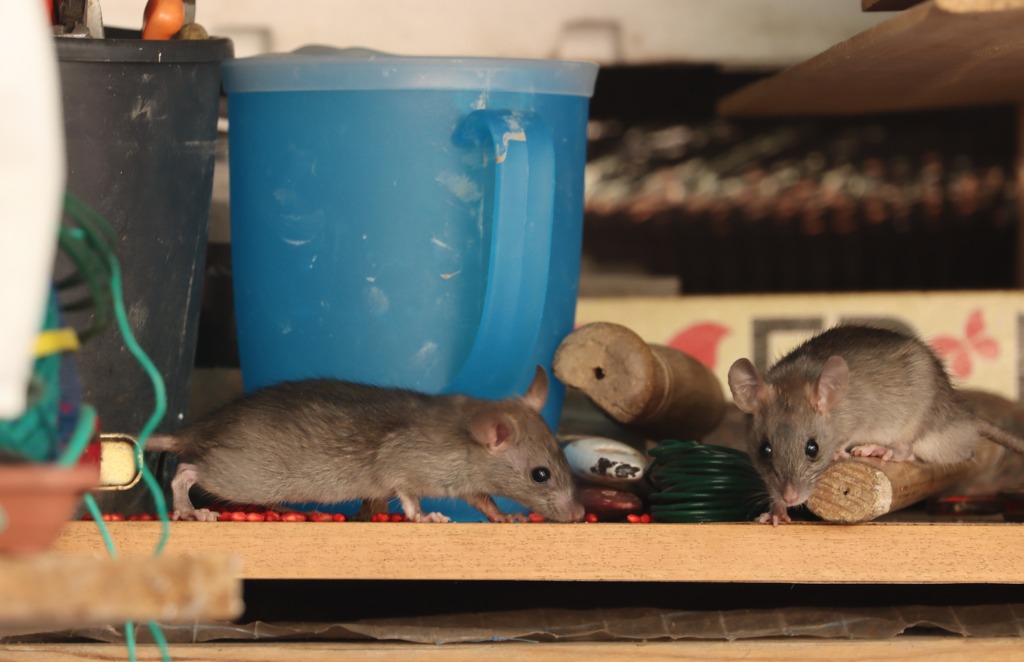
Understanding the behavior and characteristics of mice and rats is essential for effective rodent prevention. Both mice and rats are small mammals that are known for their ability to adapt to various environments.
They are highly prolific breeders, with rapid reproduction rates that can lead to infestations if left unchecked. These rodents are nocturnal, meaning they are most active during the night.
They have a strong sense of smell and are attracted to sources of food, water, and shelter. Mice can fit through very small openings due to their flexible bodies, while rats are larger and more cautious. By grasping their habits and traits, you can better implement strategies to deter and prevent these pests from infiltrating your home.
Identifying Signs of Infestation
- Droppings: Finding small, cylindrical droppings in and around your home.
- Gnaw Marks: Discovering gnaw marks on furniture, walls, wires, and other surfaces.
- Chewed Packaging: Noticing food packaging or containers with signs of chewing.
- Nesting Materials: Coming across shredded paper, fabric, or insulation used for nesting.
- Grease Marks: Identifying greasy smudges along walls or surfaces, caused by rodents’ fur.
- Scratching Noises: Hearing scratching, scurrying, or squeaking sounds, especially at night.
- Foul Odors: Detecting unpleasant, musky odors in hidden corners or confined spaces.
- Footprints: Spotting footprints or tracks in dusty areas, indicating rodent movement.
- Burrows: Discovering burrows or holes in outdoor areas close to your home.
- Pet Behavior: Observing unusual behavior in pets, like excessive sniffing or pawing at walls.
- Deteriorating Plants: Noticing plants or garden produce being nibbled on.
Being vigilant for these signs can help you catch a rodent infestation early and take appropriate measures to address it.
Seal Entry Points
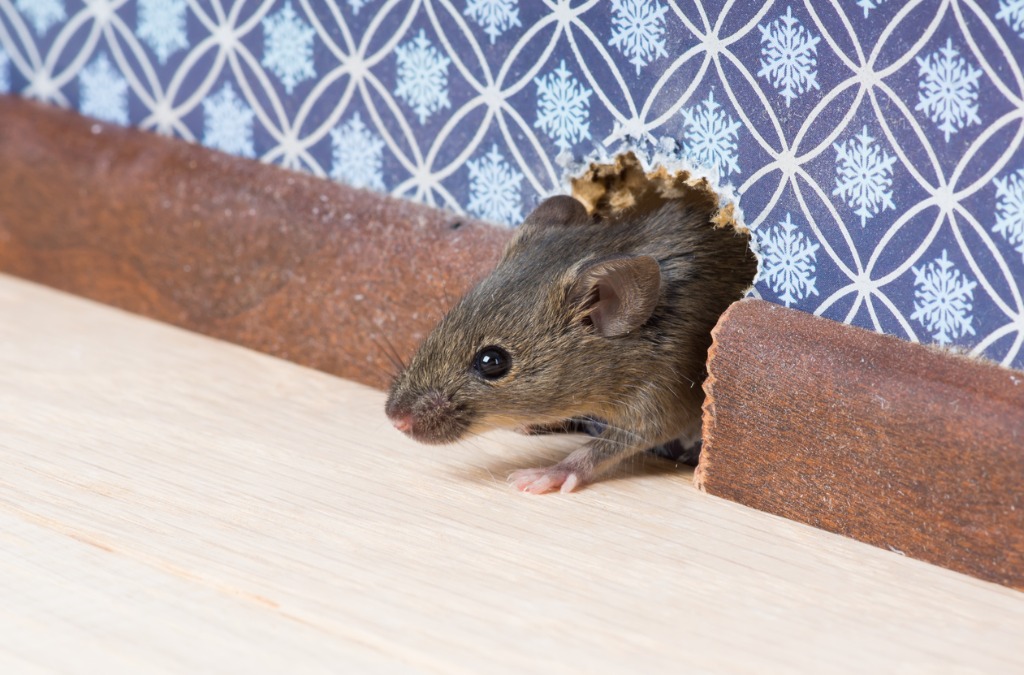
To effectively prevent rodent infestations, it’s crucial to seal potential entry points in and around your home. Begin by conducting a thorough inspection, identifying and sealing any cracks and gaps in walls, floors, and the foundation.
This prevents mice and rats from squeezing through tiny openings. Additionally, ensure that doors and windows are properly sealed to eliminate easy access points for these pests. By meticulously addressing these potential entryways, you can create a strong barrier that deters rodents from infiltrating your living spaces.
Proper Food Storage
Maintaining proper food storage practices is essential in deterring rodents from your home. Store food items in airtight containers to prevent enticing odors from attracting mice and rats. Likewise, ensure that pet food is stored securely in sealed containers to eliminate a potential food source for these pests.
By implementing these measures, you can significantly reduce the likelihood of rodents being drawn to your living spaces and safeguard your food from contamination.
Regular Cleaning
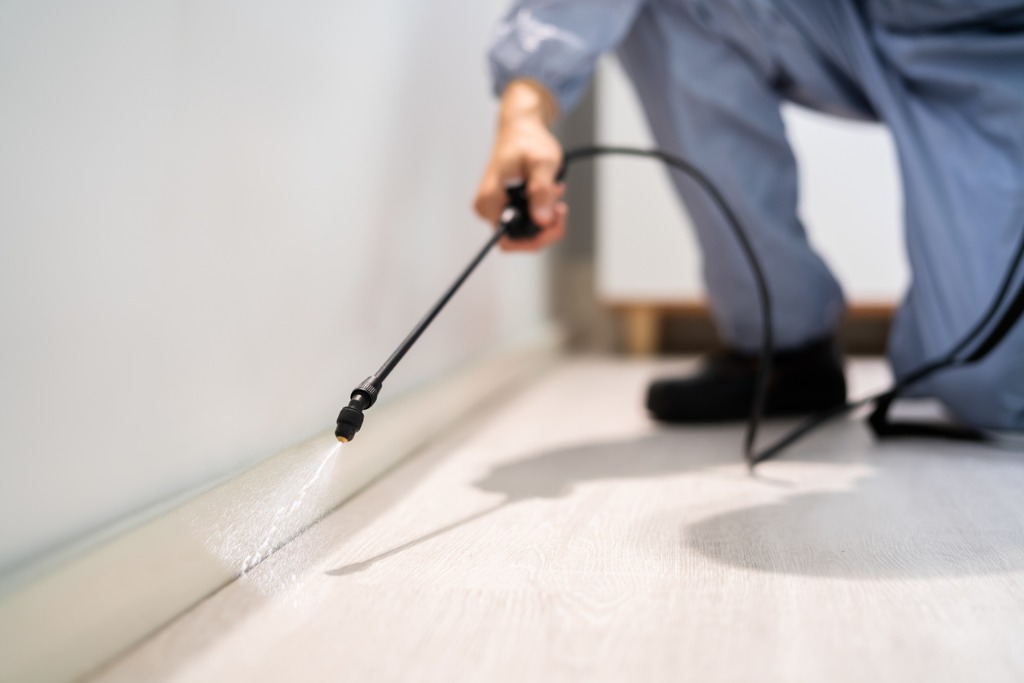
Regular cleaning plays a pivotal role in rodent prevention. Swiftly clean up food crumbs and spills to remove potential food sources that could attract mice and rats. Additionally, engage in routine cleaning of areas where rodents might seek refuge, such as dark corners, basements, and attics.
By maintaining a clean and organized environment, you discourage rodents from finding hiding spots and minimize their access to sustenance, thus helping to keep your home rodent-free.
Remove Clutter
Clearing away clutter is a central part of effectively managing rodents. Start by tidying up storage spaces and attics, as these spots often become cozy hiding places for mice and rats. Get rid of stuff you don’t need and neatly store belongings in sealed containers to cut down on potential spots for them to nest.
Also, when you keep your outdoor areas neat by getting rid of debris and maintaining well-trimmed plants, you’re reducing the spots where rodents might want to hang out. By consistently keeping things clutter-free, you’re making your space less inviting for rodents and working toward a home that’s free from these pests.
Maintain Landscaping
Keeping your landscaping in good shape can really make a difference in keeping rodents away. It’s a bit like creating a boundary between your home and these unwanted guests. Take a look at those trees and shrubs near your house – giving them a trim and some space helps prevent rodents from using them as a bridge to get inside.
And don’t underestimate the power of a well-kept yard – when your grass and plants are tidy, there are fewer hiding spots for those critters to settle in. So, by staying on top of your landscaping, you’re basically sending a signal to rodents that your place isn’t their ideal hangout spot.
Secure Garbage
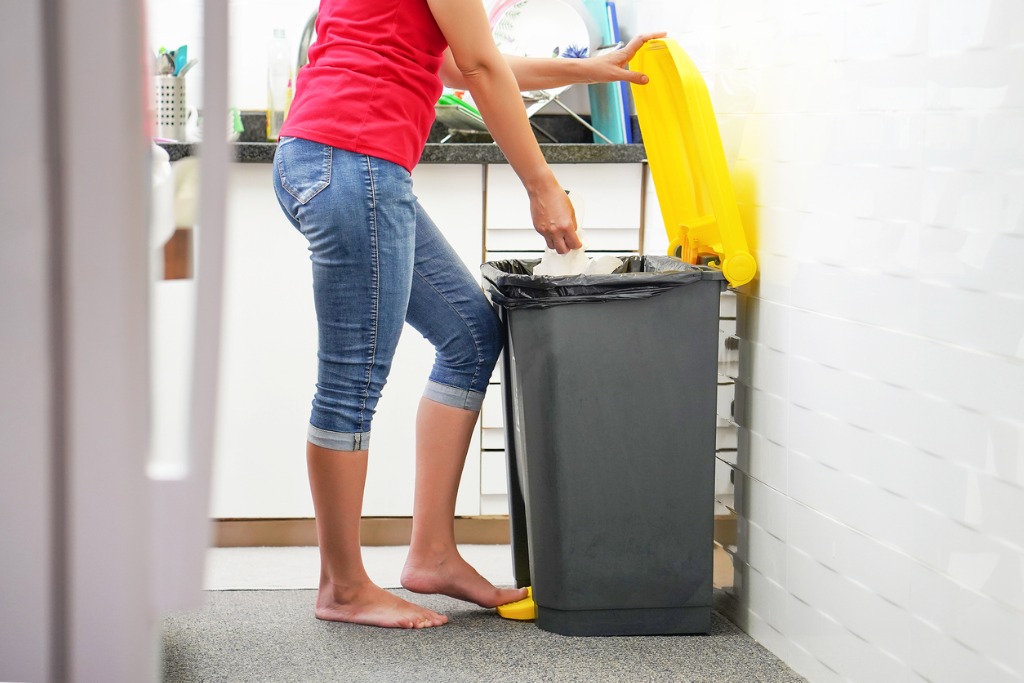
Properly securing your garbage is essential in preventing rodent issues. Opt for trash cans with tight-fitting lids that are designed to keep rodents out. This ensures that they can’t easily access food sources.
Additionally, maintain cleanliness in garbage storage areas, as any leftover scraps can attract mice and rats. By using rodent-proof containers and keeping these spaces tidy, you’re taking steps to minimize the appeal of your home as a potential feeding ground for these pests.
Use Natural Deterrents
Exploring natural deterrents can be an effective way to keep rodents at bay. Consider planting mint, lavender, or bay leaves near entry points to your home – their strong scents can discourage mice and rats from getting too close. Another option is using essential oils like peppermint or eucalyptus as repellents.
These scents can be powerful in deterring rodents and creating an environment that’s less inviting for them. By incorporating these natural methods, you’re adding an extra layer of defense against potential infestations.
Set Traps
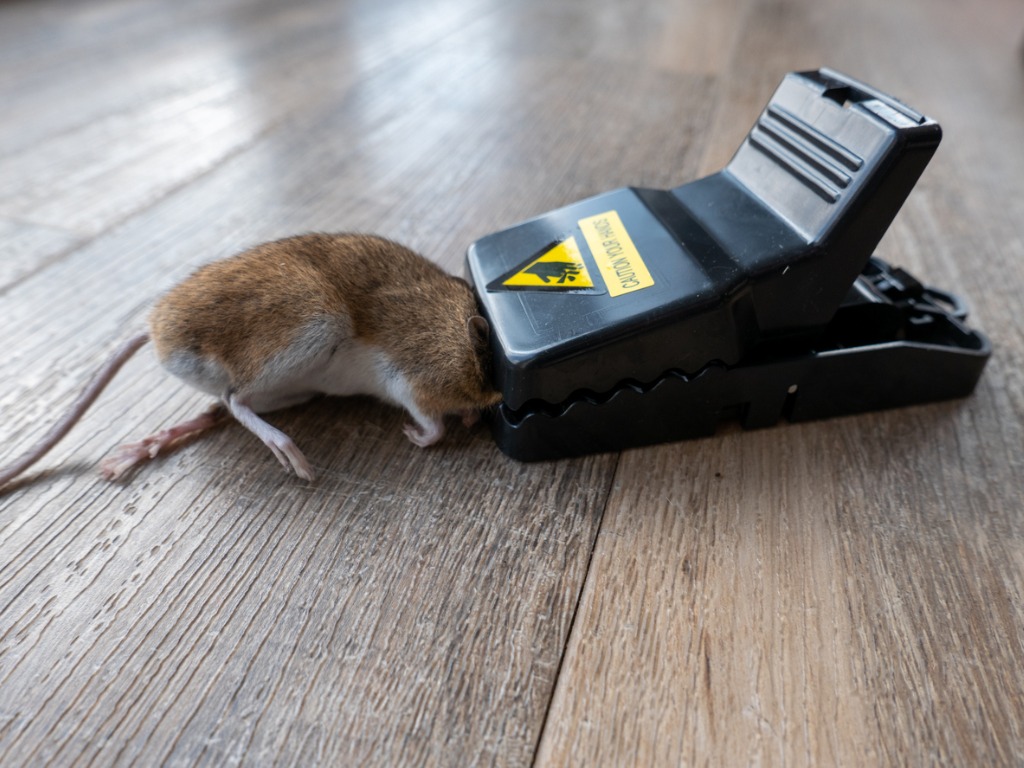
Using traps can be a practical approach to managing rodents. Consider setting up humane traps in areas where you’ve noticed rodent activity. These traps are designed to catch rodents without causing harm, allowing you to later release them away from your home.
Remember to check the traps regularly and handle any captured rodents promptly, ensuring their safe removal from your living space. This method provides a humane way to address rodent issues and maintain a pest-free environment.
Seek Professional Help
If you find that a rodent infestation persists despite your efforts, seeking professional help is a wise step. Don’t hesitate to consult a pest control expert who can assess the situation and implement effective strategies to eradicate the issue.
Additionally, considering preventive pest control measures can go a long way in avoiding future problems. These professionals have the expertise to address infestations and provide guidance on long-term solutions, ensuring the well-being of your home and maintaining a pest-free environment.
Conclusion
Safeguarding your home from rodent infestations requires a multi-faceted approach. By sealing entry points, practicing proper food storage, regular cleaning, decluttering, maintaining landscaping, securing garbage, using natural deterrents, setting traps, and seeking professional help if needed, you can create a robust defense against these unwanted pests.
It’s crucial to remember that consistent prevention efforts play a pivotal role in maintaining a rodent-free environment. The combination of these strategies not only protects your health and property but also ensures the comfort and well-being of your living space for the long term.
Frequently asked questions
Look for signs like droppings, gnaw marks, chewed packaging, scratching noises, and foul odors. These indicators suggest the presence of mice or rats in your home.
Using rodent-proof trash cans with tight-fitting lids is essential to prevent rodents from accessing food sources. Regular trash cans may not provide sufficient protection against these pests.
Yes, natural deterrents like planting mint, lavender, or bay leaves around entry points and using essential oils like peppermint or eucalyptus can help repel rodents due to their strong scents.
If your rodent prevention measures aren’t effective, consider seeking professional help. Pest control experts can assess the situation, implement more advanced strategies, and offer guidance on long-term solutions.
Consistent prevention efforts create a less hospitable environment for rodents. By practicing regular cleaning, maintaining landscaping, using natural deterrents, and other strategies, you can minimize the appeal of your home to rodents, reducing the risk of infestations over time.

